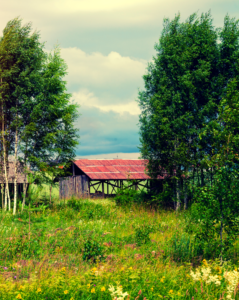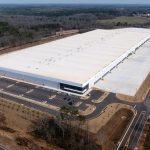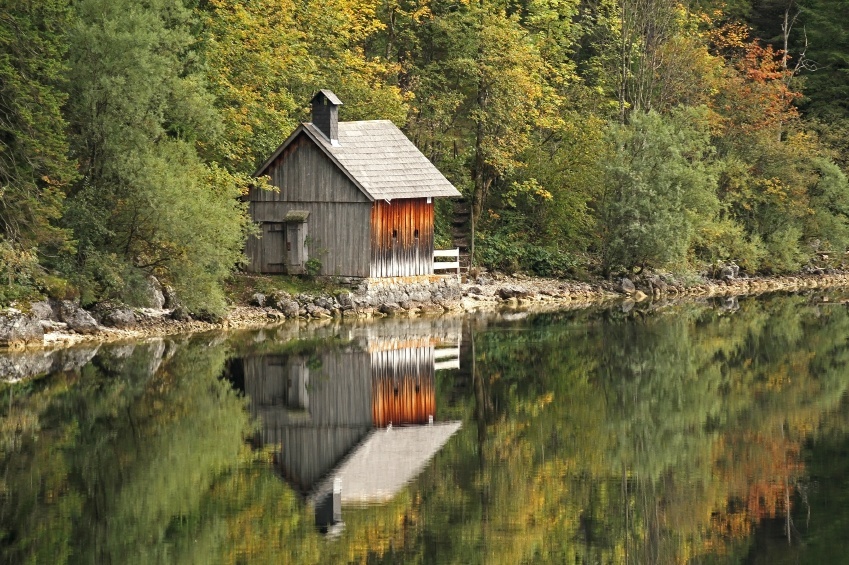
Living Off the Grid – Why
There are a great many reasons that all manner of people will want to consider living off the grid or on an isolated homestead out in the country. One of the most common reasons is merely to get away from the hustle and bustle and noise and pollution even in the more densely populated suburbs these days. Other reasons include living a healthier lifestyle, living a more organic lifestyly in harmony with nature, and some individuals are simply preparing for what they deem to be the inevitable collapse of society. While these people may all have different reasons for deciding to move off the grid, there are a number of very common factors among this rather large swathe of American society and the people who do wish to live a more fulfilling life off the grid.
Virtually all of the people who are seeking to live off the grid are more independent and self-reliant in nature. Often times, these people will not be comfortable surrounded by rules and restrictions, imposing on their ability to enjoy their lives as they see fit. Living in the cities or suburbs, there is no means for someone to raise their own foods, and even what they can or cannot grow in the limited available space for gardens is highly restricted by legislation and other bureaucratic measures forcing people to conform, willingly or not, to the standards set forth for them by their “leaders” and government officials.
The ability to more fully control the food one can grow for themselves, the ability to live in a more free environment and the ability to live without all of the pollution and congestion are all major factors in deciding to live off the grid. Raising their own food, these people are more capable of raising food without all of the harmful pesticides and other chemical additives and preservatives that are so common in store-bought goods. This in turn, in conjunction with the fresh air and heartier lifestyle, ultimately means that living off the grid is an ideal solution for anyone seeking to live a healthier lifestyle as well. This of course, also depends on exactly where the desired homestead location will ultimately be built.
Where to Build the Homestead
Once someone has decided that they do want to make the move to at least begin building their homestead outside of the confines of “civilized society”, it will be necessary to determine where to move to exactly. Such decisions will have to be carefully considered based on numerous different factors, all of which will have to be weighed independently by the individuals and/or families considering such a life completely off the grid. Perhaps the largest consideration of all here will be the factors necessary to maintain a viable and fulfilling quality of life once the individual or family has moved off the grid.
Since it will be necessary for anyone who is not independently wealthy to continue working “back in the real world” while they build their homestead, work should be a primary factor in deciding where to build the homestead site. With modern technology being what it is however, there are far more opportunities for working at home these days than there ever have been before. Programmers, writers and even many administrative and customer support jobs will allow for telecommuting to and from work … in essence, working from home. Such jobs may involve the occasional office meeting however, so location may still matter, though certainly not as much in regards to gainful employment.
For those who may be more closely oriented towards the agricultural pursuit of farming, warmer and more tropical environments may be more ideally suited. These locations will often provide for a more limited aspect of hunting, and generally smaller game animals, but farming can continue unabated year round and fishing is generally readily available in such environments, to supplement the otherwise more limited supplies of fresh game. Domestic Livestock can further supplement the desire to put meat on the table. Furthermore, those living in more tropical or subtropical environments tend to be “holed up” less than people living in colder climates, and thus, the potential for bouts of cabin fever are likewise greatly reduced.
Despite all of the benefits of living in tropical or subtropical environments, many of the more hearty and independent souls enjoy winter … even if they will begin complaining halfway into any extended winter months. Agricultural pursuits in such locations may be more limited in scope and growing seasons, but there are numerous winter crops that can be grown and greenhouses, hothouses and other such structures can likewise extend the growing season well into winter.
For the author at least, the major benefit of living in the colder northern climates revolves largely around the hunting and fishing … as being a guide can be a very profitable and rewarding means of making a living sufficient to meet the needs of the average homesteader. Furthermore, there are fewer concerns about mold, rot or other issues that will constantly demand the attention of the homesteaders in warmer and more tropical environs.
One of the most overlooked aspects in the choice for the best possible locations for a homestead, is any consideration of federal wetland protection laws and the Endangered Species Act. This is actually very important as the presence (or even creation) of wetlands, in addition to the presence of the wrong types of species of insects, birds or other critters. Any of these issues could potentially result in the otherwise perfect homestead location from ever being used for homestead construction.
Another frequently overlooked tool to find the perfect homestead location, is considering the local tax lien auctions in the area that has been selected for the homestead. Many an old-timer has died and left property behind, with no heirs and no will, often leading to these often isolated, though frequently idyllic locations abandoned. Occasionally, these tax-lien properties can be found replete with the beginnings of a homestead already under construction. And that of course, brings up the subject about how to find the perfect location to build your homestead off the grid and how to begin construction once the homestead location has been selected.
How to Build the Homestead
For the person who will be living on the homestead largely alone, the immediate construction will not be anywhere nearly as involved as it would be for an entire family. A sole individual living off the grid should place an immediate priority on the construction of an outhouse and a work shop. Everything else will progress naturally from that point forward. The reasons for the immediate construction of an outhouse should be readily apparent. Very few people are comfortable sitting out in the open and fully exposed to the weather while they are taking care of duties normally associated within the realm of the outhouse.
It is also going to be inevitable that a workshop will be needed for living off the grid. Most single people and even some couples with or without children, are fully comfortable in a single room for a limited period of time. Cooking can be handled largely in a single corner, or on a wood stove if such a luxury is necessary or beneficial in the location. Cots or even sleeping bags will generally suffice in the opening phases of construction, with more luxurious accouterments being added piecemeal as the homestead is under construction. The early phases of life on the homestead and off the grid may be akin to “roughing it” in a more “campy” atmosphere, though it probably will not take long before getting back out to the homestead off the grid will feel like nothing more than finally getting back home where you belong.
























